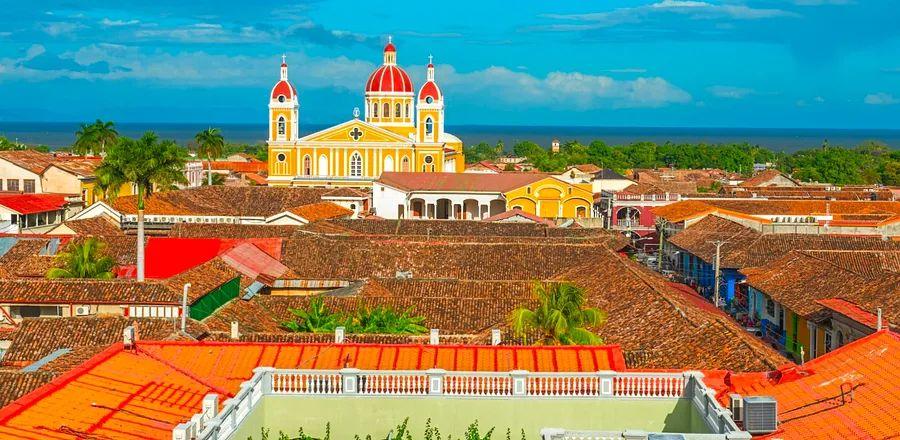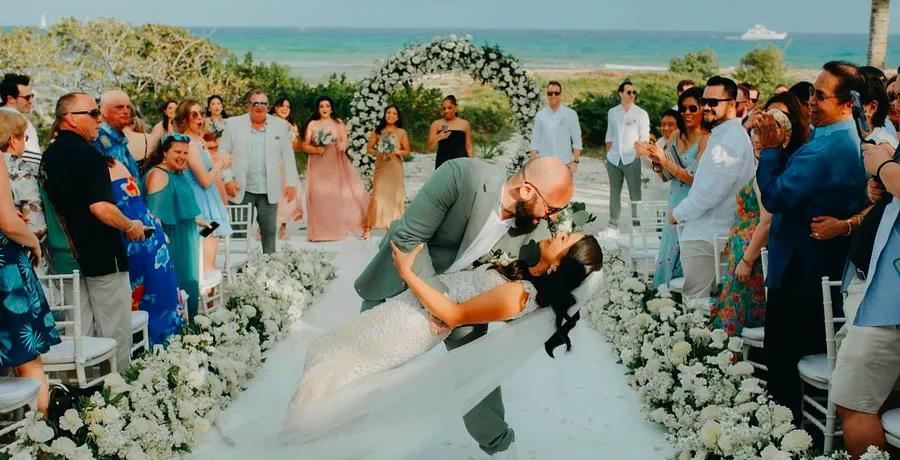Eighteen years ago, we made the leap to retire in Nicaragua. Here’s a look at the advantages and disadvantages of choosing to retire abroad.

When we first connected with Darrell and Amy Bushnell in 2017, they were already enjoying 11 years of early retirement, having moved from Charlotte, North Carolina, to Nicaragua at ages 55 and 49. This was their unique take on early retirement.
The couple, who refer to themselves as “workaholics,” had always dreamed of retiring overseas. Though they loved to travel, their decision was primarily driven by financial considerations. They relocated to Nicaragua in 2006, drawn by affordable yet high-quality medical care, ensuring that health insurance wouldn’t diminish their pensions. They expressed, “The low cost of living is what drew us in, but the people are what keep us here—friendly, hardworking, and humorous.” After spending time in San Juan del Sur, they transitioned to Granada, where they opened an art studio and gallery (La Calzada Centro de Arte), launched a website and newsletter for expats (which they have since handed over), and started raising chickens, pigs, ducks, and horses on their farm.
“We’ve never been busier,” Amy remarked at that time, “but our hours aren’t crazy. We’re engaged in activities we truly enjoy now. Our lives are filled with joy.”
Darrell chimed in, “Our definition of retirement is still an active one. We play pickleball three times a week, golf twice a week, and I’m taking Spanish lessons.”
The Bushnells have just marked their 50th anniversary and, at ages 74 and 68, they show no signs of slowing down. In fact, they might be gearing up for another move, this time with their two dogs in tow.
We recently caught up with the couple to see how their retirement abroad is progressing and to discover what their next plans are.
This interview has been edited for brevity and clarity.
You relocated to Nicaragua in 2006. At this stage, do you feel truly settled? Does Nicaragua now feel like home to you?
Darrell Bushnell: Nicaragua has been our home for 18 years, but we’re considering embarking on a new adventure soon.
Are you considering a particular destination?
Darrell: We’re thinking about two places: Mexico and Italy.
What attracts you to each of these countries?
Amy Bushnell: Mexico is appealing because we’re already fluent in Spanish, and we have many friends living there. It’s an amazing country with great opportunities, plus moving there would be easy for us and our pets.
Italy intrigues me since it would be a completely new experience. Being in Europe, I’d love to explore the region more thoroughly. My grandmother was Italian, and there are also beneficial tax incentives in certain areas of the country.
Darrell: That’s really the main point. Our top choice is Spain, but since we rely on pensions, social security, and savings, we face high taxes in most EU countries—around 30 to 40 percent. Here, we pay absolutely nothing—zero.
Mexico offers a similar advantage; in some situations, you pay no taxes on your global income. Italy has a special regime where you pay just 7 percent on your social security and pension but gain access to their national health system, which we find worthwhile.
Are there specific regions or cities in Mexico and Italy that stand out to you?
Darrell: Let’s talk about Mexico first. After 18 years here, we’re hoping for a cooler climate. This year has been particularly warm, with temperatures in the 90s every day. We’re considering the highlands of Mexico, a few hundred miles from Mexico City, where it cools down to the 50s at night.
Amy: There, you can enjoy a cozy fireplace and wear a sweater.
Darrell: I really miss having a fireplace.
Amy: For the past 18 years, I’ve only worn sandals. I only put on closed shoes for pickleball or golf.
It’s been 18 years since I last wore closed shoes.
You’ve kept so active over these 18 years. Do you even think of yourselves as ‘retired’?
Darrell: When we arrived, the focus was on ‘reinventing’ ourselves. It’s not just us; many expats here have done the same. I took up writing, and we encouraged Amy to open her own art studio. She had never taught before, but she took to it naturally.
Amy: We taught English to both adults and children, including the police. We really immersed ourselves in the Granada community, finding it easy to get involved in various ways.
Even though we mention ‘retirement’ this time, people often say, ‘Oh, you’ll end up doing something else.’ And I reply, ‘Most likely, because that’s just our nature.’ However, we are allowing ourselves to have a bit more fun now.
Darrell: We play pickleball three times a week and golf twice a week. It’s been a lot of fun, especially since we never participated in these activities before.
You just celebrated your 50th anniversary. Did you go anywhere special?
Amy: We hosted a small celebration in town, inviting friends and letting them know, ‘Open bar; come on over.’ It was really lovely.
Some people relocate to other countries and stick within the expat circles, but it seems you really embraced the local community from the start.
Amy: We got to know everyone really well and took part in small activities, like sponsoring a soccer match. Darrell also organized outdoor movie nights on the street, projecting against our neighbor’s house. She kindly let us paint the wall white for better visibility. The people here are incredibly friendly overall.
Will leaving Nicaragua be particularly challenging because of the community you’ve integrated into so deeply?
Amy: Absolutely, that’s a significant factor since we have many friends and engage in regular activities with such a wonderful group. Starting over almost feels necessary, and while it’s doable, it might be a bit tougher as we get older.
Darrell: People tend to shy away from associating with older folks, but we’ve stopped caring about that. One of the perks of aging is not worrying about others’ opinions. ‘Don’t like my attitude? That’s fine, just walk away.’ [Laughs] We have no regrets whatsoever.
That’s really the most crucial aspect, isn’t it?
Amy: Absolutely. It’s been so much fun.
Darrell: We still believe that anyone looking for an affordable change should consider moving to Nicaragua. You could bring a thousand dollars to a village and create a community center, library, or playground.
Amy: Integrating into the community has been incredibly fulfilling. When we worked in the States, our lives revolved around work, and the stress was overwhelming. We chose to retire early, inspired by my parents. The first year was daunting, but everything turned out wonderfully after that.
Darrell often asks, ‘Why didn’t we do this sooner?’ The truth is, we weren’t ready. We both enjoyed our jobs, but then we discovered there’s a whole other world out there. Living in a city like Granada allows you to connect with people from all corners of the globe.
I only realized this after leaving the country, but in many places, people don’t define themselves by their jobs like in the U.S. There, your identity is often tied to your work. In many other parts of the world, however, you are simply you.
This article was first published in 2017 and updated with a new interview on May 22, 2024.

1

2

3

4

5
Evaluation :
5/5